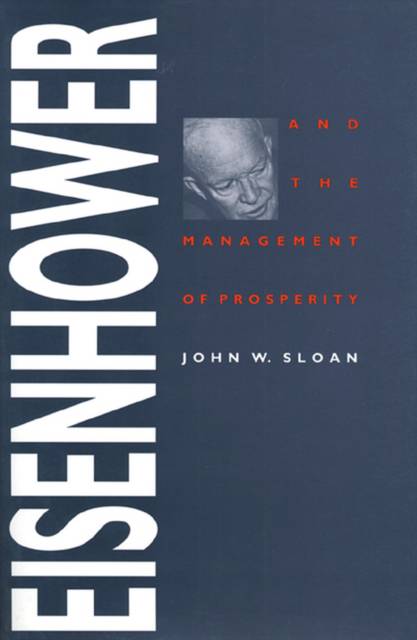
- Retrait gratuit dans votre magasin Club
- 7.000.000 titres dans notre catalogue
- Payer en toute sécurité
- Toujours un magasin près de chez vous
- Retrait gratuit dans votre magasin Club
- 7.000.0000 titres dans notre catalogue
- Payer en toute sécurité
- Toujours un magasin près de chez vous
50,95 €
+ 101 points
Description
Three years out of eight, President Eisenhower achieved a balanced budget. Only LBJ has balanced the budget since--and only once. In Eisenhower and the Management of Prosperity historian John Sloan argues that Eisenhower's performance as chief economic policymaker merits far higher marks than it has received. Along with the revisionists, Sloan underscores Eisenhower's commitment to fiscal responsibility and his impressive skills as a leader and politician. But Sloan contends that even the revisionists have underestimated the full range of Eisenhower's accomplishments in shaping America's postwar economy. "In these pages," Sloan writes, "Eisenhower appears as a conservative activist, more involved in domestic economic policy than was perceived by his contemporaries." Sloan depicts a president haunted by a prophetic fear--the fear that the nation would collapse unless politicians and their constituents practiced self-discipline, especially in balancing the federal budget. In contrast to the arguments of the revisionists, Sloan contends that Eisenhower's style of political leadership was more effective in his first term than in his second. Eisenhower was in harmony with the mood of the population during his first term, Sloan writes. But during his second term, embittered by the fight for the 1958 budget, the new, more conservative Eisenhower failed to adapt to the rising level of public expectations. He became "less machiavellian, more moral, and less effective" during his second term, Sloan writes. He allowed himself to be portrayed as an obstacle to progress and promptly became a sitting duck for Democrats. Drawing upon the extensive holdings of the Eisenhower Library in Abilene, Kansas, Sloan delineates the process by which Eisenhower and his advisors created and implemented economic policy. Then he traces the intense interplay of competing agendas, theories, solutions, personalities, and politics among Eisenhower and his key consultants. Finally he demonstrates that Eisenhower was an active "player" in the formulation of economic policy--a president who held and acted upon strong convictions.
Spécifications
Parties prenantes
- Auteur(s) :
- Editeur:
Contenu
- Nombre de pages :
- 200
- Langue:
- Anglais
Caractéristiques
- EAN:
- 9780700605873
- Date de parution :
- 06-06-91
- Format:
- Livre broché
- Format numérique:
- Trade paperback (VS)
- Dimensions :
- 152 mm x 226 mm
- Poids :
- 317 g

Les avis
Nous publions uniquement les avis qui respectent les conditions requises. Consultez nos conditions pour les avis.






